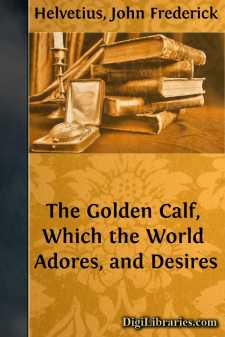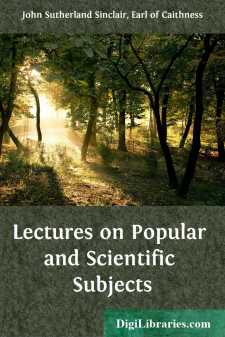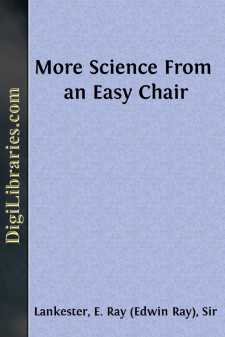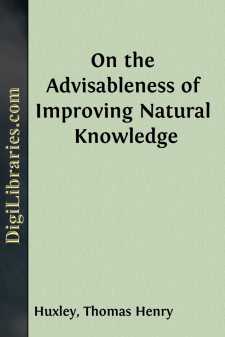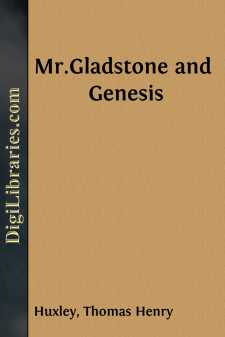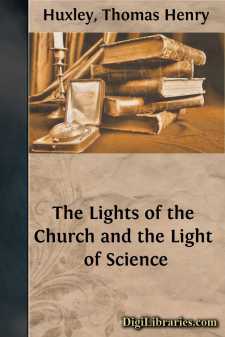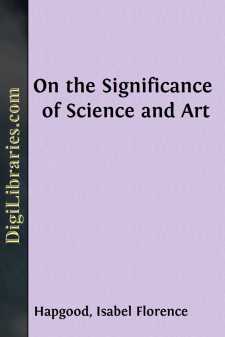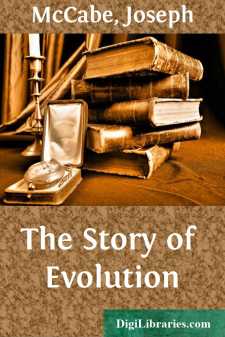Science
- Astronomy 18
- Biology 40
- Chemistry 13
- Electricity 1
- General
- History 6
- Light 1
- Paleontology 2
- Philosophy & Social Aspects 1
- Physics 3
- Relativity 2
- Study & Teaching 1
- Waves & Wave Mechanics 1
General Books
Sort by:
Some thousands of years ago there was a city in Mesopotamia called Surippak. One night a strange dream came to a dweller therein, whose name, if rightly reported, was Hasisadra. The dream foretold the speedy coming of a great flood; and it warned Hasisadra to lose no time in building a ship, in which, when notice was given, he, his family and friends, with their domestic animals and a collection of...
more...
CHAP. I. Most Excellent, and Prudent Sirs. Before I enter upon the Description of the Philosophick PIGMY,(in this little Theatre of Secrets) overcoming and subduing GIANTS, I pray permit me here to use the words of Vanhelmont, taken out of his Book De Arbore Vitæ, fol. 630. and here Transcribed. I compelled to believe, that there is an Aurifick, and Argentick Stone. But (Friend of the Spagyrick Art) I...
more...
COAL AND COAL-MINES. There are few subjects of more importance, and few less known or thought about, than our coal-mines. Coal is one of our greatest blessings, and certainly one originating cause of England's greatness and wealth. It has given us a power over other nations, and vast sums of money are yearly brought to our country from abroad in exchange for the coal we send. Nearly £17,000,000...
more...
CHAPTER I A DAY IN THE OBERLAND I am writing in early September from Interlaken, one of the loveliest spots in Europe when blessed with a full blaze of sunlight and only a few high-floating clouds, but absolutely detestable in dull, rainy weather, losing its beauty as the fairy scenes of a theatre do when viewed by dreary daylight. It is the case of the little girl of whom it is recorded that "When...
more...
This time two hundred years ago—in the beginning of January, 1666—those of our forefathers who inhabited this great and ancient city, took breath between the shocks of two fearful calamities: one not quite past, although its fury had abated; the other to come. Within a few yards of the very spot on which we are assembled, so the tradition runs, that painful and deadly malady, the plague, appeared...
more...
In controversy, as in courtship, the good old rule to be off with the old before one is on with the new, greatly commends itself to my sense of expediency. And, therefore, it appears to me desirable that I should preface such observations as I may have to offer upon the cloud of arguments (the relevancy of which to the issue which I had ventured to raise is not always obvious) put forth by Mr....
more...
There are three ways of regarding any account of past occurrences, whether delivered to us orally or recorded in writing. The narrative may be exactly true. That is to say, the words, taken in their natural sense, and interpreted according to the rules of grammar, may convey to the mind of the hearer, or of the reader an idea precisely correspondent with one which would have remained in the mind of a...
more...
CHAPTER I. . . . The justification of all persons who have freed themselves from toil is now founded on experimental, positive science. The scientific theory is as follows:— “For the study of the laws of life of human societies, there exists but one indubitable method,—the positive, experimental, critical method “Only sociology, founded on biology, founded on all the positive sciences, can...
more...
by:
Joseph McCabe
CHAPTER I. THE DISCOVERY OF THE UNIVERSE The beginning of the victorious career of modern science was very largely due to the making of two stimulating discoveries at the close of the Middle Ages. One was the discovery of the earth: the other the discovery of the universe. Men were confined, like molluscs in their shells, by a belief that they occupied the centre of a comparatively small...
more...
WHY WRITTEN Fairies, fays, genii, sprites, etc., were once supposed to be helpful to some favored men. The stories about these imaginary beings have always had a fascinating interest. The most famous of these stories were told at Bagdad in the eleventh century, and were called The Arabian Nights' Entertainment. Then men were said to use all sorts of obedient powers, sorceries, tricks, and genii to...
more...



